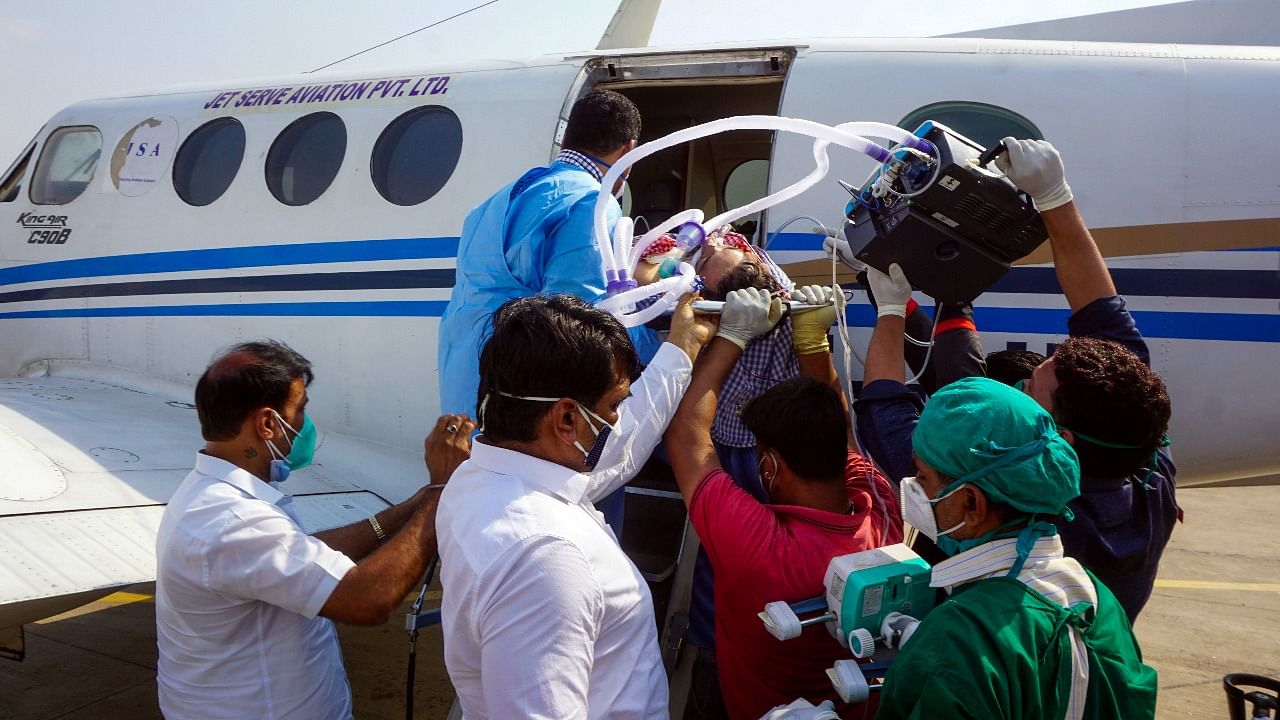
The second wave of Covid-19 is brutal, unrelenting. It has exposed the nation's dilapidated health infrastructure and a deep shortage of oxygen — a key treatment for seriously ill Covid-19 patients. How did we get here? What's behind this oxygen crunch?
The global community continues to rush much-needed life-saving drugs, oxygen cylinders and machinery that the country needs to combat the massive rise in Covid-19 cases. Apart from this effort, the Indian Institute of Technology Bombay has come up with a creative solution to address the shortage of medical oxygen.
India saw another record single-day rise of more than 3.79 lakh new Covid-19 infections that pushed the total tally over 1.83 crore while active cases crossed the 30-lakh mark, according to the Union Health Ministry data.
The eighth and final phase of voting in the West Bengal Assembly polls happened earlier today and Prime Minister Narendra Modi had called upon people to cast votes to enrich the festival of democracy while following Covid-19 protocols.
Some months into this health crisis, a Mumbai gravedigger made a bold decision. He would stop wearing personal protective equipment and gloves. He had been digging graves for 25 years and he had decided that fear would not rule his life.
At Sir Ganga Ram Hospital, a huge facility in the middle of Delhi, 37 fully vaccinated doctors came down with Covid-19 earlier this month. The infections left most with mild symptoms, but it added to their growing fears that the virus behind India’s catastrophic second wave is different. They wonder if a more contagious variant that dodges the immune system could be fueling the epidemic. So far, the evidence is inconclusive.
In these uncertain times, it's easy to be single-minded and focused on our own family's welfare. There are some, however, who put the needs of others before their own. Eighty-five-year-old Narayan Dabhadkar gave up his bed in a civic-run hospital in Nagpur to someone who he felt needed it more. And he passed away days later in an act of supreme sacrifice.
Facebook Inc. blocked posts tagged #ResignModi before restoring them hours later, stoking a controversy that’s erupted over government requests to remove social media content as the country grapples with an escalating health crisis.
Forecasting that the pandemic was only going to get worse, noted surgeon Dr Devi Prasad Shetty said that India would need an extra 5 lakh ICU beds, 2 lakh nurses and 1.5 lakh doctors in the next few weeks. He also suggested radical solutions to meet the immense challenge.
On the vaccine front, Bharat Biotech followed the Serum Institute of India's lead and slashed the price for its Covid-19 vaccine - Covaxin - that will be sold to state governments. It will be available to the states for Rs 400 per dose, reduced from the earlier rate of Rs 600 per dose.
There are more departures from the IPL. India's top umpire Nitin Menon and his Australian counterpart Paul Reiffel have pulled out of the tournament due to personal reasons. It is learnt that Menon, a resident of Indore, left the IPL bio-bubble after his wife and mother tested positive for Covid-19.
The US government told its citizens to get out of India as soon as possible as the country’s Covid-19 crisis worsens at an astonishing pace.